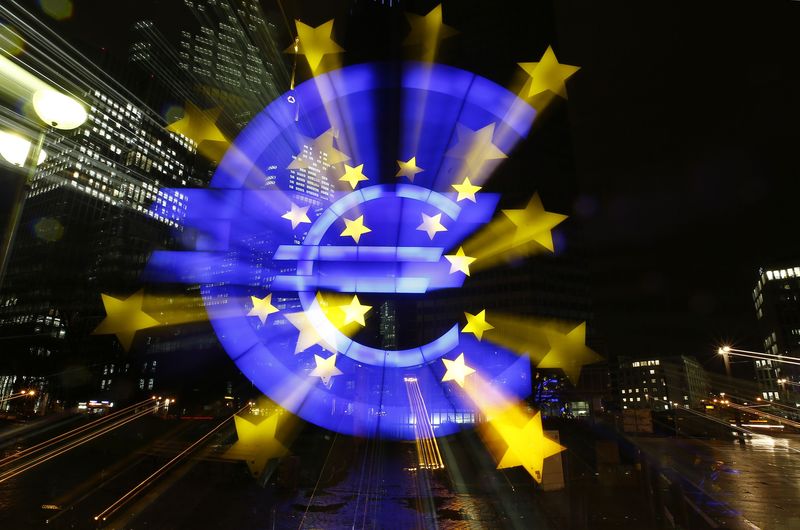(Reuters) - Activity among euro zone businesses dipped to its weakest in just over four years in December as their already downbeat expectations also turned more pessimistic, a survey showed on Friday.
That will be disappointing news for policymakers at the European Central Bank, who ended their 2.6 trillion euro ($2.95 trillion) asset purchase program - one of the main sources of stimulus for the bloc's economy - last month.
IHS Markit's Euro Zone Composite Final Purchasing Managers' Index (PMI), considered a good measure of overall economic health, held above the 50 mark that separates growth from contraction.
But it fell to 51.1 from November's 52.7, also below a flash reading of 51.3.
The outlook dimmed as the composite future output PMI fell to a more than four-year low of 59.1 from 59.5.
That suggests the euro zone economy, which grew 0.2 percent - its weakest pace in four years - in the third quarter of 2018, is likely to slow further this year.
"The data are consistent with euro zone GDP rising by just under 0.3 percent in the fourth quarter, but with quarterly growth momentum slowing to 0.15 percent in December," said Chris Williamson, chief business economist at IHS Markit.
A Reuters poll published as recently as Dec. 10 showed growth was expected to jump back up to 0.4 percent in the fourth quarter of last year.
Momentum was also lost in euro zone manufacturing during 2018, in line with trends elsewhere, according to a corresponding PMI survey on Wednesday.
The services PMI fell to a four-year low of 51.2 from 53.4, hurt by slower growth of new business.
An index measuring overall new work for services firms fell to 51.5 from 53.4, its lowest since December 2014.
That was hurt by new export orders contracting for a fourth straight month to the lowest since records began for that sub-index in September 2014.
(This story corrects milestone in headline and first paragraph to four-year low)
